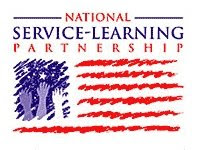Peter Yarrow of Peter Paul and Mary had no problem explaining that if kids are afraid, sick, hungry, or without a sense of community/connection, they are in no position to learn.
Why is the Commission unfamiliar with the Whole Child concept? It's not on Wikipedia - at least not directly. (Word has it, staffers have been known to use that as a litmus test...But there are a lot of thoeries and terms out there...So the challenge is on us - become relevant- and easily understood- here is why this shouldn't be such a stretch)
Whether you have unlimited resources or are educating students in a very challenging environment, there are numerous examples in the educational community implementing the whole child concept.
The Dalton School - yes, the prestigious New York private school with admission starting at $25,000 a year for kindergarten - believes in educating the "whole child." For that amount of money you'd expect them to have been developing something other than great spellers and stellar stockbrokers. Dalton believes the development of the whole child is of primary importance; that children are social beings and that schools should be communities where they can learn to live with others; and that these communities should devote themselves to the total enrichment of mind, body, and spirit.
So why are some reformers looking at the big picture and others seeing only the tests?
In this rookie blogger's opinion, the true reforming leaders are innovative people such as Dr. Barbara Staggers and Alex Briscoe who opened adolescent healthcare clinics in Oakland California. But don't get caught up in what could be considered a single issue of health care. Health care is a piece of the "whole child" approach pie. These clinics offer students leadership opportunities to have a voice in the clinic's budget and services provided. They bring in other organizations to offer civic leadership opportunities. (Yes, it's service-learning, they even have kids designing mulitmedia PSA.)
From an editorial in the San Francisco chronicle, Unhealthy Kids Can't Learn Definition of School Reform Must Include Health Care:
"The healthier you are, the better you will do in school," says Dr. Barbara Staggers, chief of adolescent medicine at Children's Hospital in Oakland, and a driving force in getting the school clinics off the ground.
The clinics, which both opened their doors in 2004, offer support groups for students suffering from diseases such as asthma and diabetes, which are prevalent at far higher rates in these struggling West and East Oakland neighborhoods. They also offer "grief support groups" for students coping with the sudden and violent deaths of friends or classmates.
The presence of these clinics suggests that the Oakland school district and others like it need to embrace a broader vision of school reform that goes beyond the classroom to focus on a child's physical and mental health as well.
"School failure is a public health epidemic, and at this school, we know that's true,'' said Briscoe, who heads the center.
It's also becoming clear that unless kids are healthy, they won't do well in school, with lifelong consequences for the students and their families -- as well as for society -- in lost productivity and hugely increased health-care costs. Unless children are healthy when they show up for class, too many will continue to fail, regardless of whatever educational reforms are being initiated around them.
I hope the Commission will take the time to read the Association for Supervision and Curriculum Development's All Together Now: Sharing Responsibility for the Whole Child. ASCD's research states "the public believes schools should develop the entire child, not just the academic child. And they want this for each child, not just for already-advantaged children."
We must take responsibility for educating the Commission and all parents, helping them embrace the value of the "whole child" if we are to move forward as a community to address the needs of our children. We risk focusing part of pie, with major missing ingredients.
In fact, let's make sure Wikipedia gets a working definition as well.
-Heather Margolis, National Service-Learning Partnership
For more information, visit these sites:
- Hope for Oakland in the Stanford University School of Education (Alex Briscoe)
- Operation Respect (Peter Yarrow)




No comments:
Post a Comment